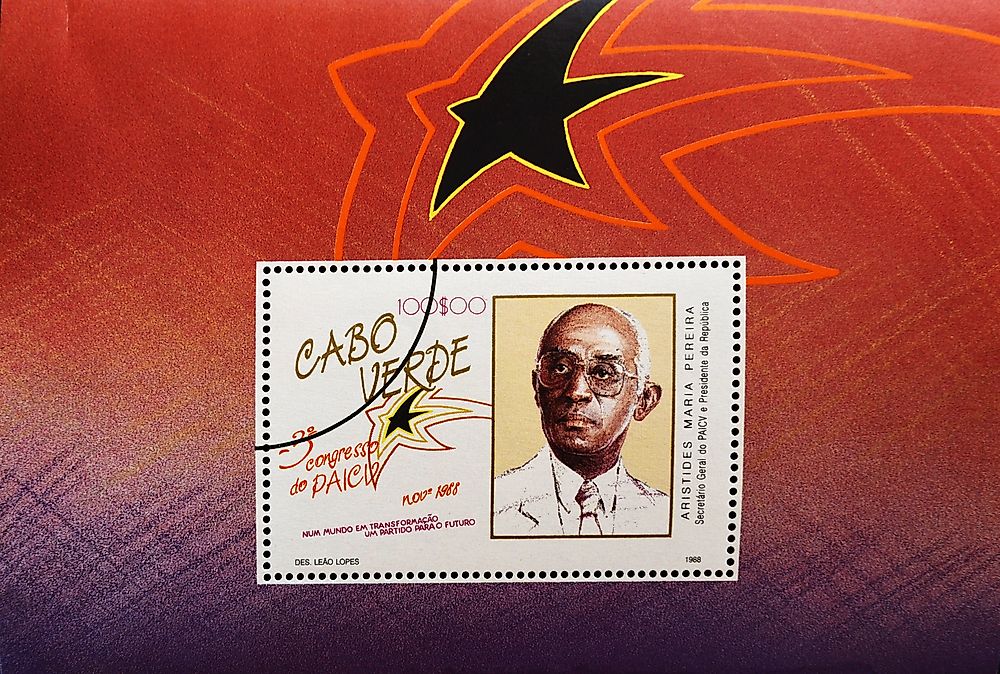Aristides Pereira, President of Cabo Verde - World Leaders in History

5. Early Life
Aristides Pererira was born on November 17th, 1921, on the island of Boa Vista, Cape Verde, which was then the Portuguese colony of Cabo Verde. He emigrated to Portuguese Guinea in 1947, and became a chief of telecommunication in the provincial colonial government there. There, he was introduced to the concepts of African nationalism and anti-colonialism, which awakened his pursuit of seeking national sovereignty. Pererira and several friends of his founded the African Party for the Independence of Guinea and Cape Verde (PAIGC) in 1956 in Bissau. The PAICG fought to unite Guinea and Cape Verde in order to overthrow the Portuguese Empire. The party remained an underground group until the 1960s, when it began to increasingly be recognized by the United Nations and other countries.
4. Rise to Power
Between 1964 and 1973, Pereira was the adjunct general secretary of the PAIGG. Then, in 1973, he was elected to act as the party's general secretary. The PAIGC intensified their actions, and soon assumed supremacy in battle over the Portuguese Army. At the same time, Pereira led diplomatic actions, seeking international recognition of the PAIGC's cause. With the independence of Cape Verde on July 5, 1975, Aristides Pereira was elected as the first President of the new republic. Following a military coup in Guinea- Bissau, the Cape Verde portion of the party separated, and became the African Party for the Independence of Cape Verde (PAICV) in 1981, with Pereira heading the faction. He was reelected president in 1981 and 1986.
3. Contributions
Pereira contributed significantly to the founding of the nationalist and anti-colonial party PAGIC, and he also helped Cape Verde achieve its independence. During his presidency, he made a series of reforms to help the newly independent country develop and grow. He protected human rights, making Cape Verde the African country with best human rights record at the time. He also strengthened democracy by delegating more power to local citizens' committees, while also supporting economic measures to improve the welfare of peasants. As the first president of an independent Cape Verde, he paved a solid foundation upon which the young country still grows.
2. Challenges
After gaining independence in 1975, Cape Verde faced a world divided into two camps. One was headed by the capitalist giants of the West, and the other by the Soviet Union and its satellite states and allied socialist republics. The small country could not afford to agitate either side by aligning with the other, so it was at a very delicate position. Pereira, with diplomatic acuteness, decided not to support either major sphere of power, but instead to form alliances with other developing countries, especially other newly independent African countries. After multiparty democracy was introduced in Cape Verde in 1990, Pereira's party, the PAIGC, which had been the governing party of Cape Verde since its independence, lost the election. After that, he retired from political life.
1. Death and Legacy
Aristides Pereira, at the age of 87, went to Portugal in August of 2011 to receive surgery for a fractured femur. He died soon afterwards, on September 22nd, 2011, at Colmbra University Hospital in Portugal. A state funeral in Cape Verde was held for him soon thereafter. As the first president of Cape Verde, Pereira's death was seen as "a great loss to the Cape Verdean nation". He is remembered by many as a hero in its anti-colonial struggle, an uncorrupted politician with integrity, and a great contributor to his country. He received many nominal honors and medals from various universities, governments, and organizations. In November 2011, several months after his death, the airport on his birthplace island of Boa Vista was named after him.











